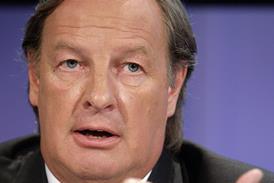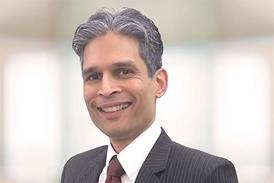Sir Rupert Jackson, the architect of the biggest civil litigation reforms of a generation, today stressed that solicitors will adjust in time to the new regime.
Ahead of his first public speech since the implementation of his reforms, Jackson accepted the introduction of costs management ‘has come as a shock’ to some, but not all, practitioners.
But he predicted that the old regime of uncontrolled litigation costs would be seen as ‘absurd’ in future years.
‘There has been a learning curve and this costs money,’ Jackson said in notes ahead of today's Civil Justice Conference in London.
‘Nevertheless litigation is a process, not an Eleusinian mystery. It is amenable to sensible budgeting and such budgeting is very much in the public interest. It takes time for costs management to bed in. Both practitioners and judges need to become comfortable with the process.
‘Once this has happened, the overall effect will be to bring down the costs of litigation.’
Jackson said it was fair to say opinion is divided on the main issues of the reforms and admitted some unpopularity was ‘inevitable’ as they were designed to change the way lawyers work. 'Every stakeholder group seems to perceive the public interest as residing in a state of affairs which coincides with its own commercial interest,' he said.
But his impression was that the largely critical responses were not a ‘fair cross-section’ of opinion within the profession, with those who were opposed or angry more inclined than others to send in responses.
He insisted it was ‘not fully appreciated’ how much training the judicial college undertook in the three months leading up to the reforms' implementation, but accepted that further training may be needed in costs management and provisional assessment of costs.
But while many consultation responses made comments about judicial skills, Jackson suggested further training for practitioners was also necessary. ‘There is a divide between those solicitors’ firms who can produce reasonable budgets without undue fuss and expense and those who cannot.'
Jackson said parties should be able to agree ‘sensible variations’ of timing which do not disrupt the litigation timetable – and he stressed he had never recommended that parties should be prevented from doing this.
‘Parties should be enabled, indeed encouraged, to co-operate in progressing litigation smoothly and at proportionate cost,' he added. ‘I understand that the rule committee is actively looking at this.’
On the subject of fixed recoverable costs, Jackson also expressed the hope that steps will be taken to fix the costs of fast track non-personal injury cases ‘as soon as practicable’.
‘It is very much to be hoped that all costs (not just personal injury costs) in the fast track will soon be fixed. The existing matrices of fixed costs and any future matrices of fixed costs are part of the costs rules which the costs committee is enjoined to monitor.’



























31 Readers' comments